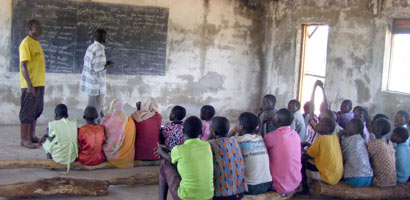Uganda’s very young population is often cited as a limitation or curse rather than an opportunity for progress and overall national development.
And in many instances, not to mention the fact that even those that are in the most able age groups, are less productive.
Added to this is the fact that the country faces an unprecedented level of unemployment as thousands of graduates compete for jobs as mediocre as working as cockpit assistants or messengers. Under these circumstances, economists and development experts have called for a vigorous policy and commitment to slow down the country’s rapidly rising population.
These calls have in the past fallen on deaf ears of those in power as seen by President Museveni’s ambiguous rhetoric on the subject that has seen him argue for more babies to be born on grounds that big demographic numbers mean a big market needed by the investors.
The Uganda government’s meagre spending on reproductive health matters over the years has attracted criticism from donors and development experts as a sign of unwillingness to bring overall birth rates under control.
Following years of intense lobbying by donors, the government appears to be yielding to pressure to address the country’s rapidly growing population. This is seen in the changing rhetoric in favour of increased funding for family planning.
President Museveni surprised many two years ago in London when he said the government was committed to increasing funding for family planning programmes from a mere US$ 3.6m to US$ 5m in the 2013/2014 budget. Ministry of Health officials say the government surpassed its pledge by increasing reproductive health budget to US$6.9m last financial year.
The first ever Family Planning Conference, scheduled to open on July 28, 2014 in Kampala may be seen as a favourable change in attitudes of top government officials towards family planning.
According to Dr. Anthony Mbonye, the Commissioner for Clinical Services at the Ministry of Health, President Museveni will officiate the conference.
Mbonye downplayed questions during a media conference that cast president Museveni as an opponent of family planning. He argued that Museveni’s desire to create a big market for Uganda is not in conflict with the need to increase access to family planning.
Critics however point at the president’s lack of stewardship on the subject, more in line with what he did in HIV/AIDS struggle, as well as the huge funding deficit for family planning services as an inditement on the part of government.
The also point at the government’s unwillingness to mount an aggressive and meaningful agricultural recovery programme, not just to lift the standards of living of people but also to ensure food security.
With the current population growth rate faster than that of agricultural growth rate, there are genuine concerns that the country faces a food security crisis, which will undermine several other achievements especially in health and education.
Mbonye said delegates will deliberate the subject of population dividend – which essentially looks at how the country can take full advantages of its youthful population.
The conference, according to Health Minister Ruhakana Rugunda, will enable scientists to share their research on best practices with policy makers, practitioners with the view to chatting the way forward for Uganda in attaining family planning objectives.
Observers however argue that the Family Planning crusade is still being led by foreigners, something that undercuts its objectives.
But a closer look at the overall government budget implementation suggests that its not just family planning that is receiving minimal attention. Several other critical areas such as maternal health, education, agriculture, HIV/AIDS, non-communicable diseases too are receiving far less funding than is expected.
Priority is instead put on sustaining a huge administration rather than creating a skilful, highly productive population.
Without significant investments in the social and economic sectors, Uganda’s rapid population therefore means a growing burden for the country.








